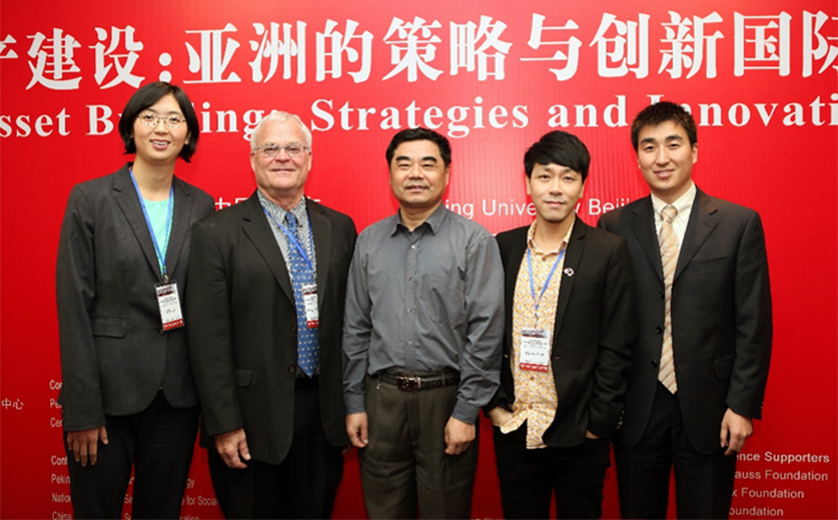For more than 25 years, the Brown School’s Center for Social Development has been pioneering programs around the world to create asset-building accounts for children to improve their chance for life success.
Led by Michael Sherraden, founding director of CSD and George Warren Brown Distinguished University Professor, CSD has defined this policy direction, conducted innovative research and used the findings to advance the creation of child development accounts in the U.S., the United Kingdom, South Korea and other nations, most recently in Israel.
“Universal accounts for children lead to increased asset holding, and also to better parenting, higher educational expectations, and improved social-emotional development of children,” Sherraden said.
In 2004, Sherraden, working with Jewish and Arab colleagues in Israel, proposed a Middle East Development Account for all Israeli and Palestinian children.
In 2015, Israel’s parliament passed a law funding long-term savings accounts for all newborns, based on a proposal developed by Michal Grinstein-Weiss, associate director of the CSD and also a professor at the Brown School. Grinstein-Weiss worked closely with government leaders and other social policy experts for over a decade to help propose and pass the law, including organizing multiple conferences and expert delegations to raise the idea and collaborating with executive leadership at Israel’s National Insurance Institute, Ministry of Social Affairs, and Ministry of Finance.
Monthly deposits of 50 shekels are made by the government into each child’s account, so that even very poor families can build assets for their child’s future. Importantly, the new law includes non-citizen Palestinian children in East Jerusalem.
Recipients can access funds at age 18 for education, small business enterprise, marriage or homeownership. At age 21, the funds will be accessible with no restrictions.
“Passing the law is a great step toward advancing social and economic mobility of children in Israel and giving them a financial head start once they reach adulthood,” Grinstein-Weiss said. “The infrastructure of the child allowance is a powerful platform to deliver these accounts and can serve as a model for other countries.”
Sherraden said the aim of children’s accounts is to be fully inclusive.
“The large purpose of asset-building research at the Brown School is assets for all. We aim to inform a fully inclusive policy. The goal is accounts for everyone, starting at birth, with automatic deposits, and greater subsidies for the poor,” he noted. “We envision lifelong accounts to be used for education, home ownership, enterprise, and other development purposes, as well as additional economic security in old age.”
